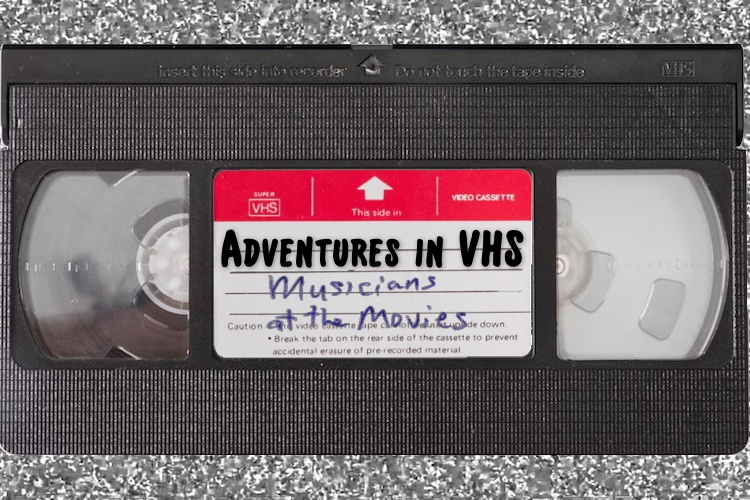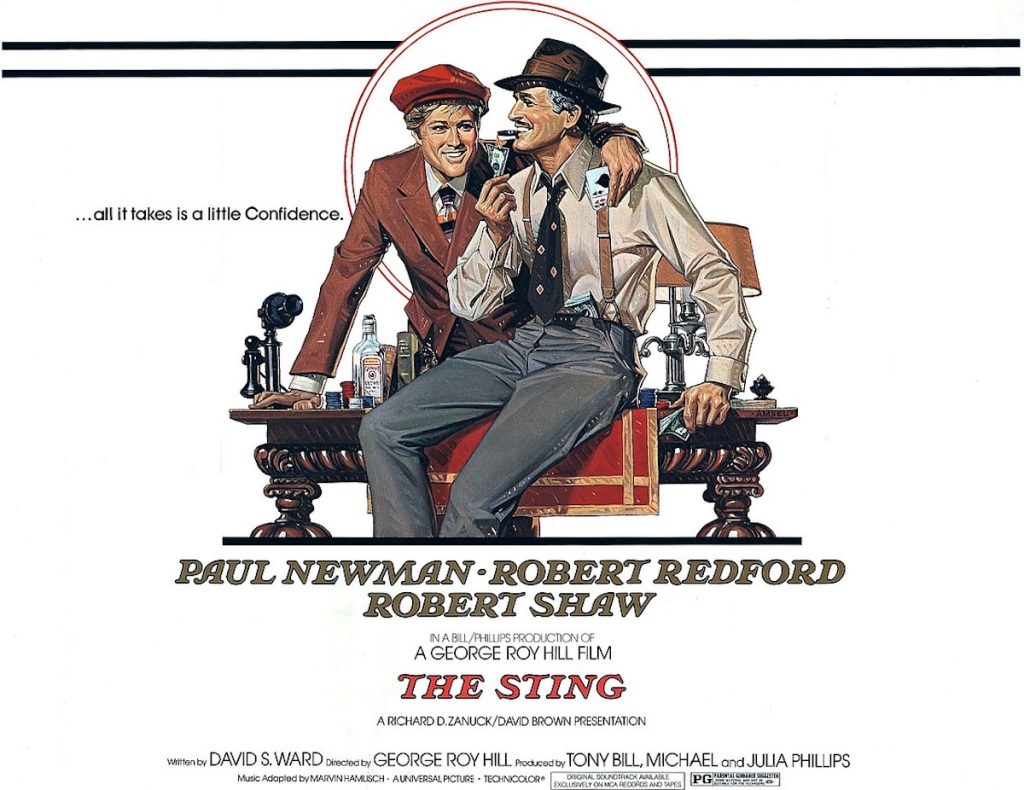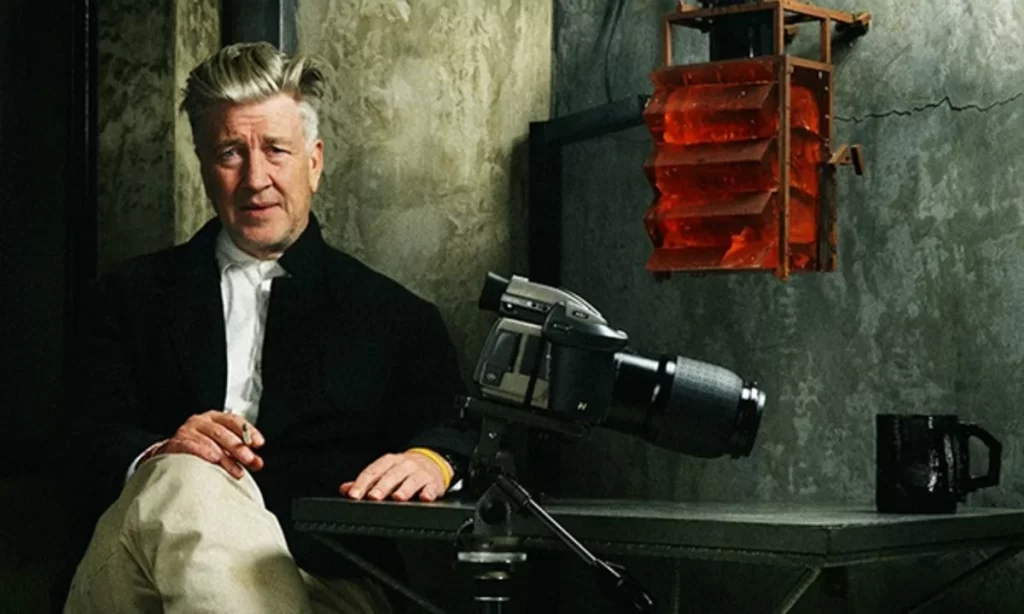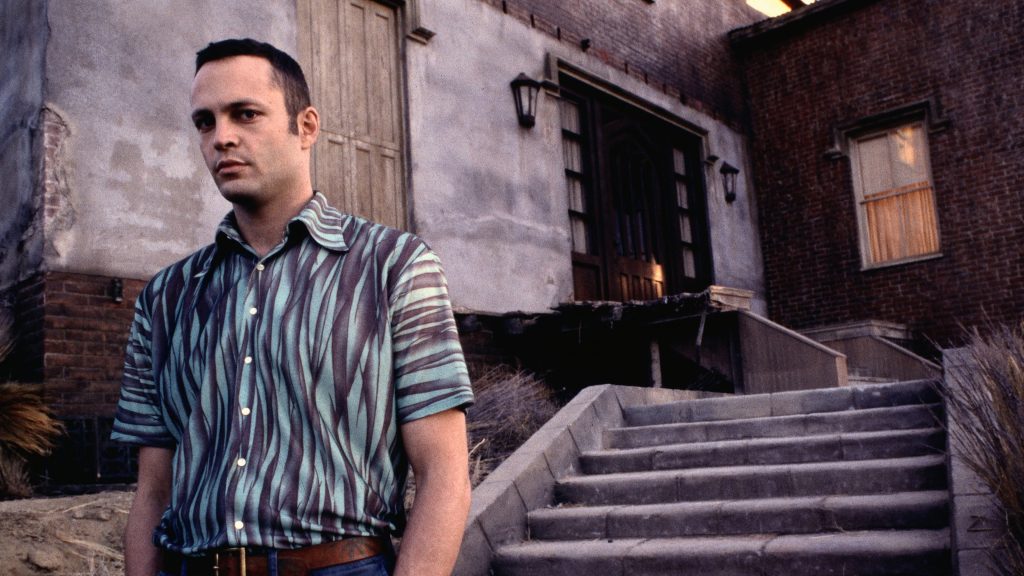Editor’s note: After we’d published two of these columns, we discovered that Noel Mellor already has a well-established podcast and book called “Adventures in VHS.” We chose the name at the last minute and neglected to check whether anyone was already using it — totally our mistake. We apologize to Noel and encourage you to visit his site. We will return to being perfect most of the time. Thank you.
I have a VHS problem. They are my Chapstick; bought frequently, replaced before sufficient use, and lost from my pockets as collateral damage when I retrieve change overzealously. Adventures in VHS™ is an attempt to subsidize that problem and justify its consuming ruin by digging into three loosely connected, barely discussed VHS tapes that I happen to own. There’s no telling what we’ll find when we rewind. You’re all enablers now. Join me, won’t you?
Rock stars. Some call them the movie stars of rock. But could they be the movie stars of movies? Fortunately, money has existed for a long time and provided many answers to this age-old question. Today, I explore three such answers: 1988’s Buster, 2000’s Longshot and 1980’s One Trick Pony.
Phil Collins, Movie Star, makes less immediate sense than Phil Collins, Rock Star, because he sprang from that hallowed time in music when a multi-platinum pop icon could look like the fun math teacher. Genesis music videos alternately played along with his unconventional image — the Fun Phil — or didn’t play at all — Serious, Sometimes-Scary Phil, in sweaty black-and-white, where the chummy smirk fades into a hangdog severity.
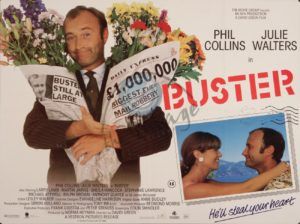 Buster – tagline: “He’ll Steal Your Heart” – promised me Fun Phil. The fact that he replaced Bob The Long Good Friday Hoskins made it sound more like a role for Serious, Sometimes-Scary Phil. The movie, unfortunately, can never decide which one it wants.
Buster – tagline: “He’ll Steal Your Heart” – promised me Fun Phil. The fact that he replaced Bob The Long Good Friday Hoskins made it sound more like a role for Serious, Sometimes-Scary Phil. The movie, unfortunately, can never decide which one it wants.
Buster opens with what would pass for a solid Genesis video: Phil, complete with mischievous smirk, eyes a snappy suit in a storefront window, breaks the glass with a trash can, and runs halfway across London with the mannequin under his arm. Did he steal it because he’s a charming rogue we can’t help but love? No, he actually needed the dark suit for his friend’s funeral. So begins Buster’s tenuous grasp on tone and what to do with its capable leading man. The movie I signed up for, that all the advertising promised, called for a giddy heist like the original Italian Job with a freewheeling Michael Caine type to match. Collins could easily do it, and does when the movie lets him, but Buster is really the true story of a wanted felon putting his family through slow hell to stay one step ahead of certain arrest.
When Buster flees England for Mexico with his now-wanted wife and daughter, neither of whom want to go, the obligatory shot of a plane landing among palm trees is accompanied by “Loco in Acapulco,” a perversely upbeat Four Tops number co-written by Collins. The lyrics of this chipper song refer to the dissolution of his family, who soon tire of the weather, food, and Buster’s careless outlook on everything, including them. But boy does it make for a catchy soundtrack.
The two Collins songs, which he worried would overwhelm his acting, don’t distract so much as disjoint. “Groovy Kind of Love” almost works if you squint, playing over silent footage of Buster giving himself up to the police for a reduced sentence he’d never get. “Two Hearts,” though, is reserved for the 1980s-regulation freeze-frame-on-a-smile end credits that belong in a different movie entirely. Buster should’ve been a star-making showcase for an admirably talented musician-turned-actor, but it never lets him have enough fun or work into enough of a frenzy to make an impression. The result feels like a TV Movie of the Week based on the same story that a harsher Bob Hoskins version would’ve handled better. Buster didn’t kickstart Phil Collins, Movie Star, but at least the man can act.
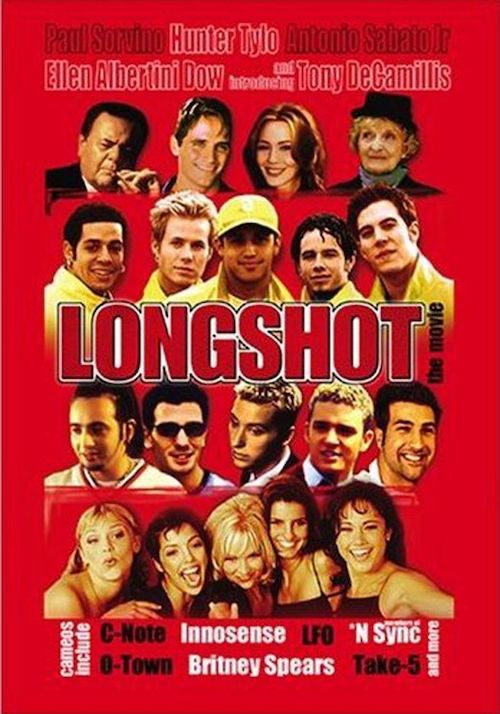 Longshot gave me pause. The box assured me at every turn that this was Longshot: THE MOVIE, despite the only other piece of officially licensed Longshot merchandise being the soundtrack, which they did not feel the need to title Longshot: THE SOUNDTRACK. The front cover is a Cannonball Run collection of headshots, no two matching in style, color, or image quality. The back cover spends 90% of its text reminding you just how rare an opportunity it is to see acts like Innosense, C-Note, and O-Town on the same tape, with only the following saved for the plot:
Longshot gave me pause. The box assured me at every turn that this was Longshot: THE MOVIE, despite the only other piece of officially licensed Longshot merchandise being the soundtrack, which they did not feel the need to title Longshot: THE SOUNDTRACK. The front cover is a Cannonball Run collection of headshots, no two matching in style, color, or image quality. The back cover spends 90% of its text reminding you just how rare an opportunity it is to see acts like Innosense, C-Note, and O-Town on the same tape, with only the following saved for the plot:
“…an unbelievable adventure where two brothers find that when life hands you curve balls, sometimes the best solution turns out to be a long shot!”
After a surreal vignette where nearly identical pairs of pop stars mock a lame commercial for Longshot: The Movie starring another nearly identical pair of pop stars, the story proper begins and assures the viewer the title is in no way metaphorical.
It opens with a Nike ad that’s just a high school basketball game shot in the movie’s house style. But it’s not any game. It’s the Big Game, and Basketball Player blows the Last Shot. I will continue to refer to this basketball player, our hero, as Basketball Player because that’s as much characterization as we get. Despite this life-altering failure having almost no repercussions (Oldest Son from Home Improvement pushes him around, but his crush, Topanga, still practically molests him at Circuit City so he’ll ask her to the dance), Basketball Player is crushed and will carry this guilt through the entire movie until a company, an arrest, and multiple relationships ride on his making a single half-court shot. Sounds like a standard, stupid high school movie, and that half of the movie certainly is.
It’s the other half, starring Basketball Player’s brother, Gigolo, that took me by surprise. See, Gigolo is a womanizing personal trainer who happens to womanize Paul Sorvino’s wife. Paul Sorvino, as contractually obligated, is a Mafia Guy and forces Gigolo to do what he does best — corporate espionage. A competitor has ill-defined secrets and Gigolo is just the man to seduce them out of her.
The unnatural union of these two completely incompatible plots gives Longshot its true, broken identity. If you took a season of a high school drama The WB cancelled in 1998 and attempted to cut it down and piece it together with the lone season of its spin-off, a Baywatch-grade action-adventure that turns a minor character from the original show into a globe-trotting super-spy with little explanation, you’d end up with something like Longshot: The Movie. A bonding scene in which Basketball Player and Gigolo open up to each other while boxing makes much more sense as a piece of an episode otherwise discarded because nothing about it is brought up ever again. There’s a relatively impressive explosion early on that feels like the expensive highlight of a season finale. Tasteful, network-appropriate beefcake provides distraction for the fleeting hints of exposition. As a Frankenstein’s monster of disgraceful television, Longshot: The Movie barely holds together as a minor motion picture. With the cameos and constant winks about said cameos, it survives only as an absurdist time capsule.
When a ten-second appearance by your favorite member of Natural interrupts the movie and you don’t know a single member of Natural, it’s just a rogue extra stepping on the actors’ lines and hijacking the scene. You’ll have a few curiously wooden, completely inconsequential characters goofing around for what feels like an hour only for The Rock to literally jump into the movie for ten seconds as a mute mugger who gets his knife-wielding ass handed to him by a high school student no bigger than his left arm. Considering how many of the pop stars shamelessly showcased actually went on to acting careers — about four in two dozen — Longshot: The Movie doesn’t even feel like the sales pitch it was meant to be anymore. By the time pilots Kenny Rogers, KC (of the Sunshine Band), and Lance Bass thanked stewardess Britney Spears for bringing them coffee in the cockpit of the commercial jet they’re flying together, I had lost all mooring in time, space, and home video. What year was it? Who are these people? Why is this promo for the 1999 MTV Video Music Awards so long?
Longshot: The Movie is a pop culture landmine, waiting for someone stronger than I to properly defuse and display it for the internet to collectively mock.
The most embarrassing cameo of them all belongs to Art Garfunkel, who wanders into the Pseudo-Circuit City with his family because his son wants an LFO album. Gilbert Gottfried, the manager, shrieks with delight before repeatedly failing to remember his name. The best he can do is recalling that he was part of a team.
I took it as divine suggestion. I needed salvation, and all that remained was the Paul Simon movie.
 One Trick Pony has sat on my shelf, unwatched, for decades as a contentious piece of Herbert mythology. I only own it because my great-aunt has a bit part in it, so the legend goes. For many and various reasons, I never saw fit to prove or disprove it, but I certainly didn’t believe it, considering she was not an actress and never lived anywhere but Cleveland, Ohio.
One Trick Pony has sat on my shelf, unwatched, for decades as a contentious piece of Herbert mythology. I only own it because my great-aunt has a bit part in it, so the legend goes. For many and various reasons, I never saw fit to prove or disprove it, but I certainly didn’t believe it, considering she was not an actress and never lived anywhere but Cleveland, Ohio.
I can now confirm my great-aunt is in One Trick Pony (she’s briefly seen as a motel clerk with no lines), and the rest of the movie is pretty interesting, too. Paul Simon plays Jonah, a fading folk singer who hasn’t had a hit since Vietnam. On the cusp of the 1980s, his marriage devolves from separation to full-blown divorce and his band opens for hardcore punk acts like The B-52s. If the group behind “Love Shack” doesn’t seem particularly hardcore or sufficiently punk, that’s because One Trick Pony occupies a fascinating, fleeting moment in rock ’n’ roll. The B-52s are dangerous. No serious musician mentions The Eagles without spitting out the taste. Everyone goes pale at the thought of sounding more like Frampton. The bitter irony, 38 years on, is that all these acts have been relegated to the same small pond of classic rock radio. The average listener won’t notice the incendiary edge of “Rock Lobster” or balk at sell-out sheen of “Heartache Tonight,” sounds equally obvious and unpleasant from the movie’s perspective. What One Trick Pony missed and what makes it that much more compelling is that the songs it does celebrate, like Simon’s “Late in the Evening,” as defiant tributes to the dying sound of authenticity, now play in the same rotation as all the rest.
Suffice it to say, the music’s great. Unlike Buster and Longshot, One Trick Pony was built for, by, and around Paul Simon, who wrote both the script and the soundtrack. His band’s performances serve no real narrative purpose; they exist purely as three-minute reminders of the catchy melancholy and simple joy of Paul Simon songs. When Jonah begrudgingly agrees to play a 1960s tribute concert, his consuming angst over a past that only wants him for one song and a future that doesn’t want him at all takes a backseat to killer performances by Sam & Dave and The Lovin’ Spoonful. But One Trick Pony is not a concert film. Nor is it a musical, as the Warner Home Video cover claims. If anything, it’s a drama that rests squarely on the shoulders of its unlikely star.
To best describe Paul Simon, the Actor, allow me to quote Paul Simon, the Musician: limited. He’s at his best drunkenly telling a Top 40 radio czar he has a fat ass or playing baseball with his son, who’s barely old enough to hit a baseball but the perfect age to want to do what dad does. When an airport prophet played by an embryonic Daniel Stern bids him farewell with a “Hare Krishna,” Simon smiles to himself and offers “Harry Chapin” in return. When all that’s asked of him is the awkward charm of an eighth grader anxiously campaigning for class president, he’s delightful, as in so many interviews and Saturday Night Live cold opens.
But then he has to get mad, sad, or sexy and it just doesn’t work. A vicious argument with his wife turns his flat four-letter words into the emotionless yells of a psychopath. For a guy we’re supposed to want reunited with his family, Jonah sure gets around. More often than not, the dramatic weight of any given scene rests on Paul Simon’s default look of despair; eyebrows at attention, lips slightly parted and eyes clogged with gentle hurt, like he’s always just been dealt a very mild insult about his shoes. When it comes to grown-up actors, he fares best with his band and Rip Torn, who plays a relatively soulless record producer made-up like a mod Rasputin.
Perhaps the strangest thing about One Trick Pony is its complete lack of a legacy. The soundtrack is better remembered only on the principle that it’s a Paul Simon album, which holds more water than a Paul Simon movie. It took Warner Brothers until 2009 to release it on any format nicer than the one I just watched. Even Cleveland, with an economy based entirely on the two blocks that Marvel movies use to fake New York, seems to have disowned it, despite some quality footage of the legendary Agora Ballroom circa 1979. Today it feels like a forgotten ancestor to indie dramedies about musicians fighting a world that just doesn’t get them. But Jonah is twice the median age of those misunderstood geniuses, and his worry isn’t being understood so much as whether or not that understanding, as a road musician pushing 40, is worth the cost. One Trick Pony feels like a second-string Simon song; a little sad, a little forgettable, but nice to hear nonetheless.
Rock stars. Are they truly the movie stars of rock? Of course they are. But could they be the movie stars of movies? After watching three vastly different attempts to answer this riddle as old as the Sphinx, I believe I’ve come to a conclusion.
Depends.
But I would like to see Phil Collins as a James Bond villain, if anybody important is reading this.
Jeremy Herbert
